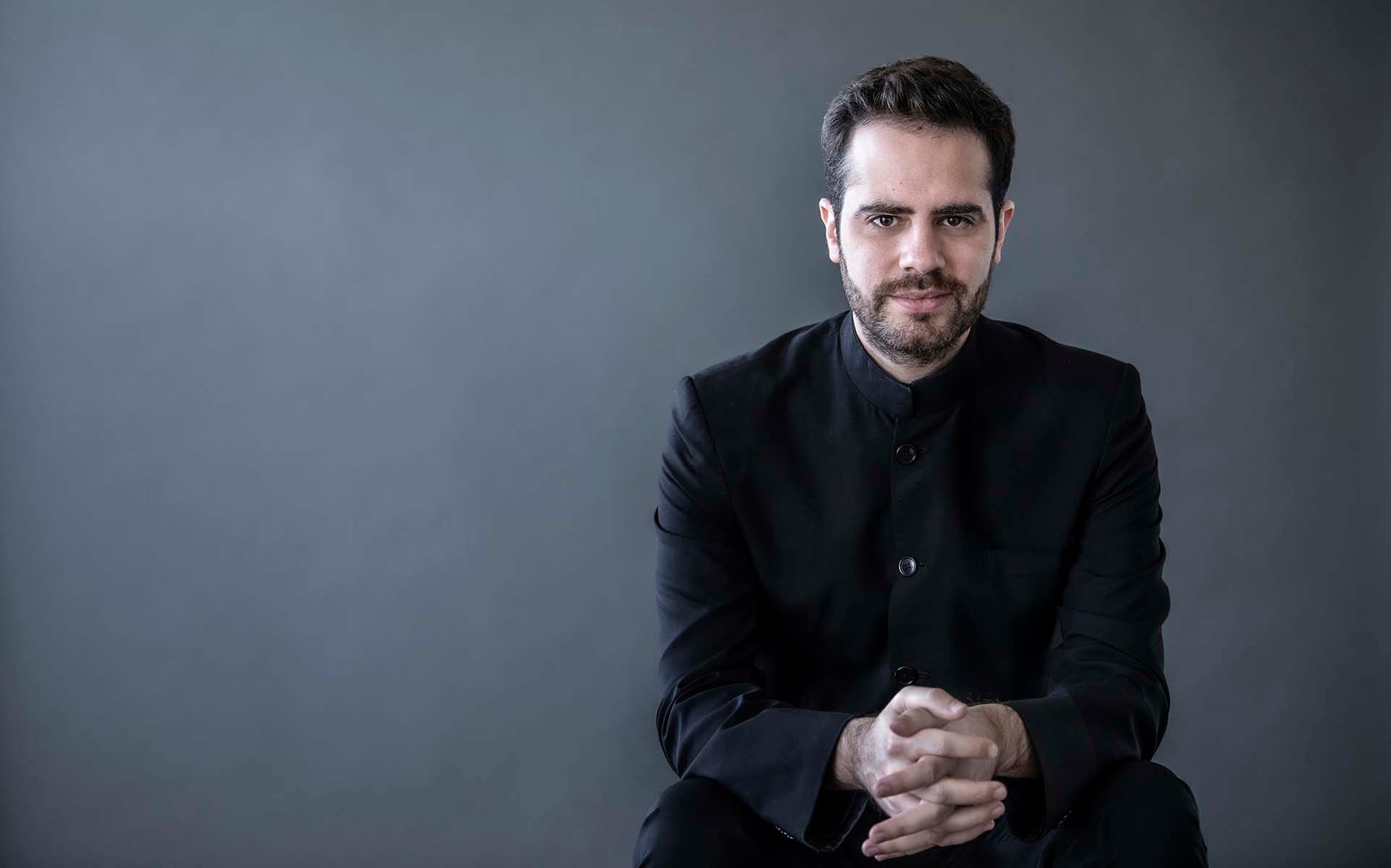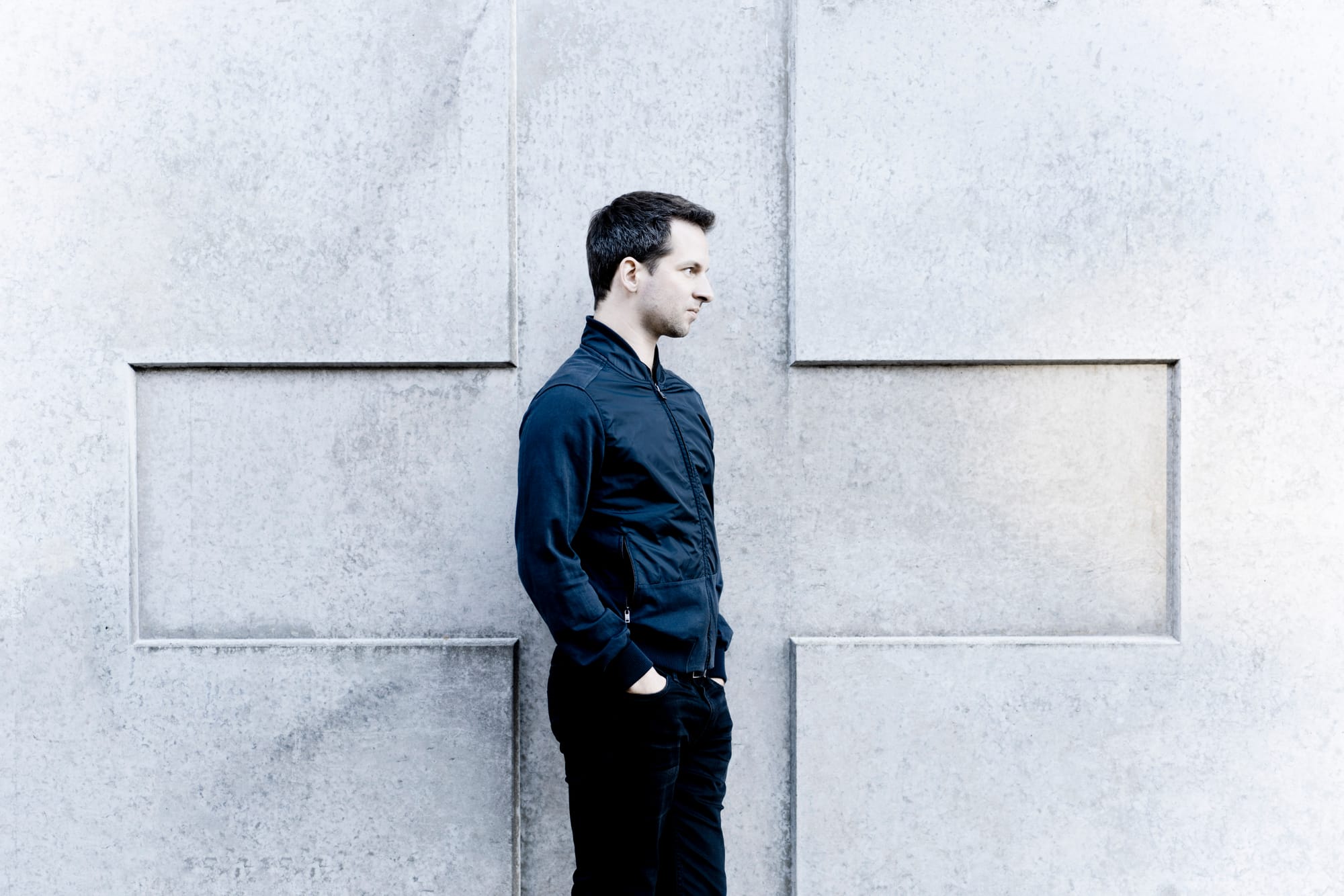
Unsuk Chin, Bartók, Debussy, Ravel Bertrand Chamayou (piano); BBC Symphony Orchestra / Dinis Souza (conductor)
Unsuk Chin Alaraph, ‘Ritual of the heartbeat’ (2022, London premiere)
Bartók Piano Concerto No. 3, Sz 119 / BB 127 (1945)
Debussy La mer (1903-5)
Ravel Boléro (1928)
Premiered in Basel in 2023, Unsuk Chin’s Alareph, ‘Ritual of the heartbeat’ now arrives in London. The last Chin I heard at the Barbican was a World Premiere – her Violin Concerto No. 2, ‘Scherben der Stille,’ performed by Leonidas Kavakos with the London Symphony under Sir Simon Rattle; her music continues to impress in music that is uncompromising both in vocabulary and in intent.
Here, that intent positively cosmic: the inspiration is the star Beta Virginis (more properly β Virginis). Around two decades ago, science pinpointed ‘heartbeat stars’: light emissions fluctuate from these stars over a period of weeks (it has to do with how two stars orbit each other, one with a highly elliptical orbit; as the stars near, the brightness changes, hence the shifts in perceived overall brightness: speed this up 10 million times and convert it into sound, and you get a heartbeat). It appears the idea of a heartbeat might have equated to the sound of a drum in Chin’s mind, as Alaraph is significantly impacted by Korean ritual. A couple of years ago, I covered a 27-part (!) Korean ritual given in Germany as part of Musikfest Berlin (review); and one could hear elements of that slow-moving power in Chin’s astonishing score.
Chin uses a battery of percussion (six percussionists, plus two harps and piano), mainly unpitched (and those that are pitched – piano, timpani – seem to marry up to that, primacy given to attack and gesture). Chin is a master of orchestration: huge though the orchestra undeniably was, it was used colouristically with one unifying palette. An accordion, placed between the harps and the audience, adds an intriguing timbre, tremolandi perhaps equating to stellar vibration. A primordial drumbeat attests to the ancient nature of ritual and to the eternality universe and its power; tinnitus winds suggest humans reacting for star sounds. Harmonic aggregations are stark, dissonant but never once over-dense (Souza’s direction doubtless had a large part to play in this aspect); and as six cymbals quietly pan across the stage space right to left, one is left with a sense of utter awe. Wonder at the Universe and its mysteries, certainly; but also for Chin’s undeniably mastery. This was a major premiere.

Bertrand Chamayou has gathered a huge reputation, not least for his recording of Messiaen’s Vingt Régards de l’Enfant Jésus. He took on Bartók’s Third Piano Concerto. The Third is more immediaely approachable than the First or Second, A recent performance by Pierre-Laurent Aimard and Concerto Budapest under András Keller at G-Live in Guildford was mightily impressive; but Chamayou and Souza were even finer. HIs clarity of articulation was just as impeccable as Aimard’s, but he was more inside the composer’s world. Communication between soloist and conductor, so vital in this piece, was remarkable, the orchestra absolutely there with the soloist, exchanges finely calibrated. The BBC strings sounded fabulous in the Adagio religioso for Souza, and Chamayou delivered Bartók’s lines beautifully; chords (and indeed chorale), too, were perfectly placed. The finale was full of life, the jaunty chordal statement on piano at the opening joyous. Shadows were nicely pointed out by Souza (as the programme annotator Stephen Johnson points out, there are perhaps hints of Bartók’s Sixth String Quartet’s mix of ‘bitter humour and introspection’ in this movement, perhaps referencing in particular the ‘Burlesca’ secion); after this fine performance, an encore was inevitable perhaps: Debussy’s piano Prélude, ‘La fille aux chevaux de lin’
Chamayou’s encore formed a nice link to the first piece of the second half, Debussy’s La mer. Before that, though, the presentation by the current President of the Music Division UK Critics Circle, Richard Thicknesse of the annual award of Young Talent (Conductor) to Dinis Souza. As Souza said, no pressure for the second half, then (you can find a list of all winners of the 2023 awards here).
And indeed, this was a terrific coupling of two very familiar French masterpieces. La mer was beautifully sculpted, the climax of ‘De l’aube à midi sur la mer’ natural and powerful; but the major trait here was loving detail. Taken at a nicely moving pace, on felt everything was audible and in perfect proportion; a required mention for the BBCSO’s leader on this occasion, Stephen Bryant, so deliciously sweet-toned.
The ‘scherzo,’ ‘Jeux de vagues,’ was not just accurate, i was he most purely alive performance of this movement I have ever heard. It was Souza’s gestural awareness that shone in the finale, ‘Dialogue du vent et de la mer’. True, the BBCSO strings can occasionally still sound rather shrill, but this seems to be the exception rather than the rule these days. Throughout, woodwind solos were exemplary.
Finally, Ravel’s Boléro, where those wind soloists really did shine, Principal Flute Daniel Shao perhaps first among equals. Again, Souza’s blend of attention to detail and long-range preparation (here of course, a carefully calibrated, long crescendo) was the clinching factor to the performance’s success; and the members of the BBCSO really do play their hearts out for him.
A concert of many highlights; but it is Unsuk Chin’s star (or, indeed, stars) that shines the brightest.









